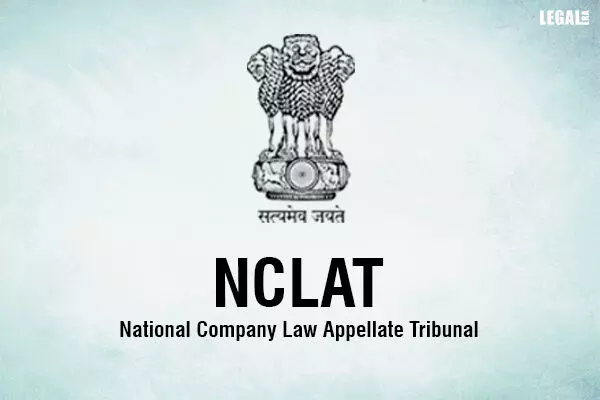- Home
- News
- Articles+
- Aerospace
- Agriculture
- Alternate Dispute Resolution
- Banking and Finance
- Bankruptcy
- Book Review
- Bribery & Corruption
- Commercial Litigation
- Competition Law
- Conference Reports
- Consumer Products
- Contract
- Corporate Governance
- Corporate Law
- Covid-19
- Cryptocurrency
- Cybersecurity
- Data Protection
- Defence
- Digital Economy
- E-commerce
- Employment Law
- Energy and Natural Resources
- Entertainment and Sports Law
- Environmental Law
- FDI
- Food and Beverage
- Health Care
- IBC Diaries
- Insurance Law
- Intellectual Property
- International Law
- Know the Law
- Labour Laws
- Litigation
- Litigation Funding
- Manufacturing
- Mergers & Acquisitions
- NFTs
- Privacy
- Private Equity
- Project Finance
- Real Estate
- Risk and Compliance
- Technology Media and Telecom
- Tributes
- Zoom In
- Take On Board
- In Focus
- Law & Policy and Regulation
- IP & Tech Era
- Viewpoint
- Arbitration & Mediation
- Tax
- Student Corner
- AI
- ESG
- Gaming
- Inclusion & Diversity
- Law Firms
- In-House
- Rankings
- E-Magazine
- Legal Era TV
- Events
- News
- Articles
- Aerospace
- Agriculture
- Alternate Dispute Resolution
- Banking and Finance
- Bankruptcy
- Book Review
- Bribery & Corruption
- Commercial Litigation
- Competition Law
- Conference Reports
- Consumer Products
- Contract
- Corporate Governance
- Corporate Law
- Covid-19
- Cryptocurrency
- Cybersecurity
- Data Protection
- Defence
- Digital Economy
- E-commerce
- Employment Law
- Energy and Natural Resources
- Entertainment and Sports Law
- Environmental Law
- FDI
- Food and Beverage
- Health Care
- IBC Diaries
- Insurance Law
- Intellectual Property
- International Law
- Know the Law
- Labour Laws
- Litigation
- Litigation Funding
- Manufacturing
- Mergers & Acquisitions
- NFTs
- Privacy
- Private Equity
- Project Finance
- Real Estate
- Risk and Compliance
- Technology Media and Telecom
- Tributes
- Zoom In
- Take On Board
- In Focus
- Law & Policy and Regulation
- IP & Tech Era
- Viewpoint
- Arbitration & Mediation
- Tax
- Student Corner
- AI
- ESG
- Gaming
- Inclusion & Diversity
- Law Firms
- In-House
- Rankings
- E-Magazine
- Legal Era TV
- Events
NCLAT rules adjudicating authority authorized to replace liquidator

NCLAT rules adjudicating authority authorized to replace liquidator
The appellant was replaced by NCLT on being arrested by the Central Bureau of Investigation
The principal bench of the National Company Law Appellate Tribunal (NCLAT) has held that the adjudicating authority can invoke its inherent powers to replace the liquidator and provide justice.
The bench comprising Justice Ashok Bhushan (chairperson), Dr. Alok Srivastava (technical member), and Barun Mitra (technical member) was adjudicating an appeal filed in the Subrata Maity vs Amit C. Poddar case.
The appellant, Subrata Maity was the liquidator of corporate debtor Seam Industries Ltd. But vide its September 2022 order, the adjudicating authority replaced him with another liquidator Amit C. Poddar.
The authority noted that the erstwhile appellant was arrested by the Central Bureau of Investigation, who was then left incapable of acting as a liquidator for 116 days.
Maity challenged the order before the authority. He contended that he was neither issued any notice nor served the copy of the application filed by the Stakeholders Consultation Committee seeking the appointment of Poddar. He also stated that immediately after his arrest, he was granted bail.
NCLAT observed that as criminal prosecution was going on against the appellant, the adjudicating authority did not err in replacing him with another liquidator. Therefore, he did not have any personal right to continue in the process.
It stated that the reasons noted in the impugned order were sufficient for the National Company Law Tribunal (NCLT) to replace the liquidator. It was not a fit case to interfere with the jurisdiction of the appellate.
Dismissing the appeal, the bench ruled, "The counsel for the appellant contended that there is no provision in law for replacement of the liquidator by the adjudicating authority. But the present case is where inherent powers can be exercised by the adjudicating authority to do substantial justice."



